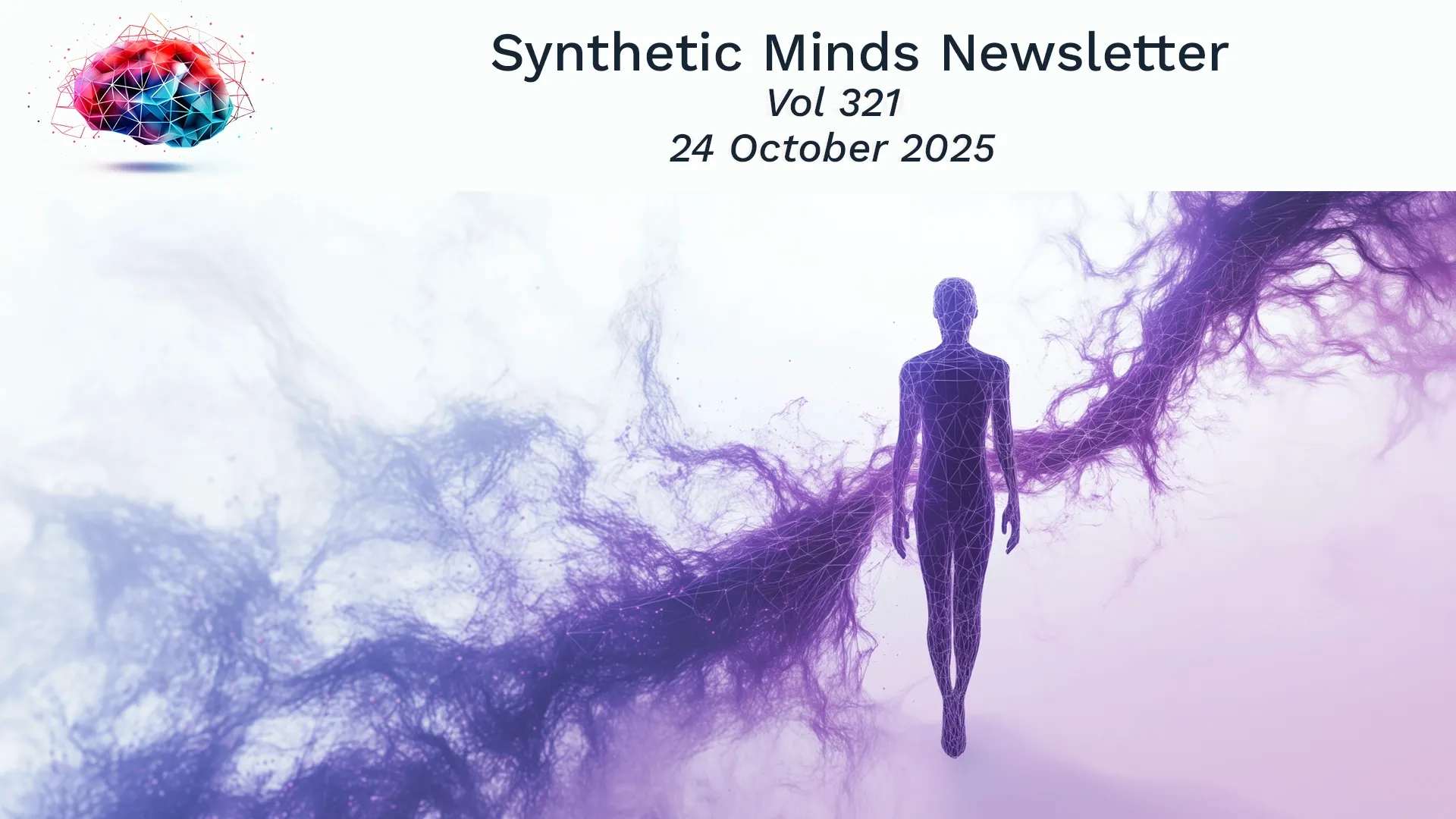Synthetic Minds | AI Isn’t Artificial

Synthetic minds is evolving. Short bi-weekly insights to get you thinking. If you enjoy it, please forward. If you need more insights, subscribe to Futurwise and get 25% off for the first three months!
AI Isn’t Artificial, It’s Nature Remembering Itself
We like to think we’re inventing artificial intelligence. But what if we’re only discovering it?
Discovery implies that it was always there, woven into the fabric of existence, waiting for us to uncover it. If that’s true, then AI isn’t some foreign, mechanical intrusion into our world. It’s part of nature’s own architecture.
Think about it: machines, algorithms, neural networks, all of them are extensions of natural processes. They were conceived by human minds, and human minds are born from nature. Even our most complex code originates from carbon and curiosity. So how “artificial” is something born from the same cosmic logic that wrote DNA?
If the lowest common denominator of the universe is information, then intelligence, human, machine, or otherwise, is just one expression of that deeper language. DNA encodes life through four simple letters. Physics encodes reality through mathematical symmetry. Perhaps AI is the next verse in nature’s song, another way information learns to understand itself.
This perspective changes everything. If AI is a discovery of nature, not a deviation from it, then maybe the future doesn’t have to feel so alien. Nature has rhythm. It creates and destroys, adapts and restores. It has balance, even in its brutality. Our challenge isn’t to dominate it, but to rejoin it.
For centuries, we’ve drifted away from that understanding. We’ve treated nature as an inconvenience, something to conquer or extract from. But you wouldn’t extract from yourself. You are nature. And so is the intelligence we’re uncovering.
If we remember this, truly remember, we can design technology that flows with the grain of the universe, not against it. We can build systems that regenerate, not deplete. Tools that enhance, not replace. Futures that harmonize, not fracture.
Maybe that’s the real work ahead: to stop pretending we’re the architects of creation, and instead become its conscious collaborators.
Because discovery is humbler than invention, and infinitely more human.
So the question becomes: if intelligence is nature discovering itself, what role will we choose to play?

'Synthetic Minds' continues to reflect the synthetic forces reshaping our world. Quick, curated insights to feed your quest for a better understanding of our evolving synthetic future, powered by Futurwise:
1. New AI browser ChatGPT Atlas already raises security concerns. Cybersecurity experts have raised concerns about OpenAI's new AI browser, ChatGPT Atlas, being vulnerable to malicious attacks. Can you trust your AI assistant? (Fortune)
2. Tesla's Optimus robots promise to revolutionize work and free humanity from drudgery, but at what cost? Tesla's Optimus robots may change the world, but can we trust Elon Musk with that power? (Wired)
3. Google's quantum computer just achieved a major breakthrough in quantum computing. Quantum echoes could revolutionize the field and lead to new discoveries. (Ars Technica)
4. Don't rely on AI for news! 45% of AI-generated news responses contain serious errors. Verify facts yourself and use multiple sources. (Tom's Guide)
5. Google launched Gemini Robotics 1.5, which is an advanced model designed to power robots in understanding their environments and performing complex tasks. It enables robots to reason through multi-step tasks, make decisions, and carry out actions autonomously, bringing a humanoid workforce a lot closer. (Google)
If you are interested in more insights, grab my latest book Now What? How to Ride the Tsunami of Change and learn how to embrace a mindset that can deal with exponential change.
If this newsletter was forwarded to you, you can sign up here.
Thank you.
Mark




